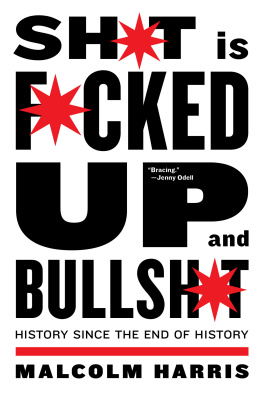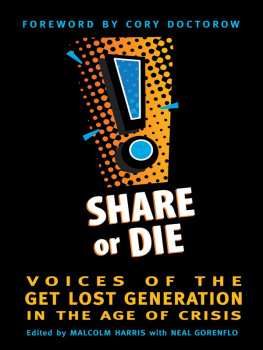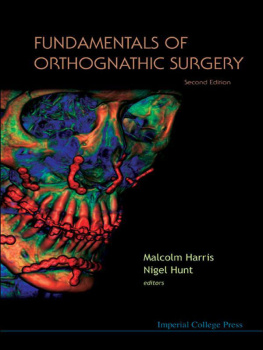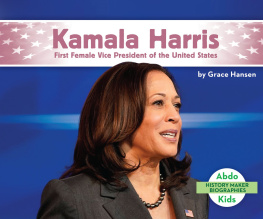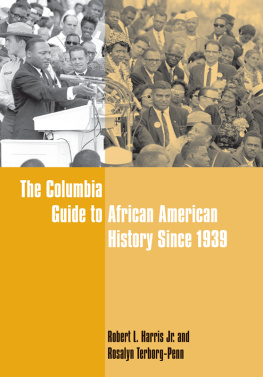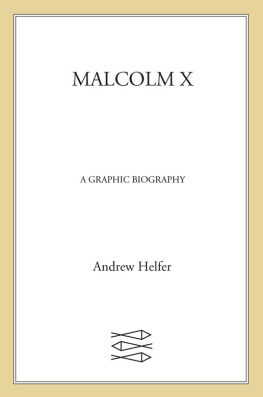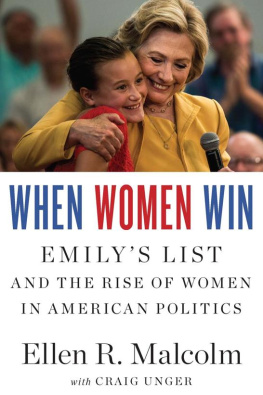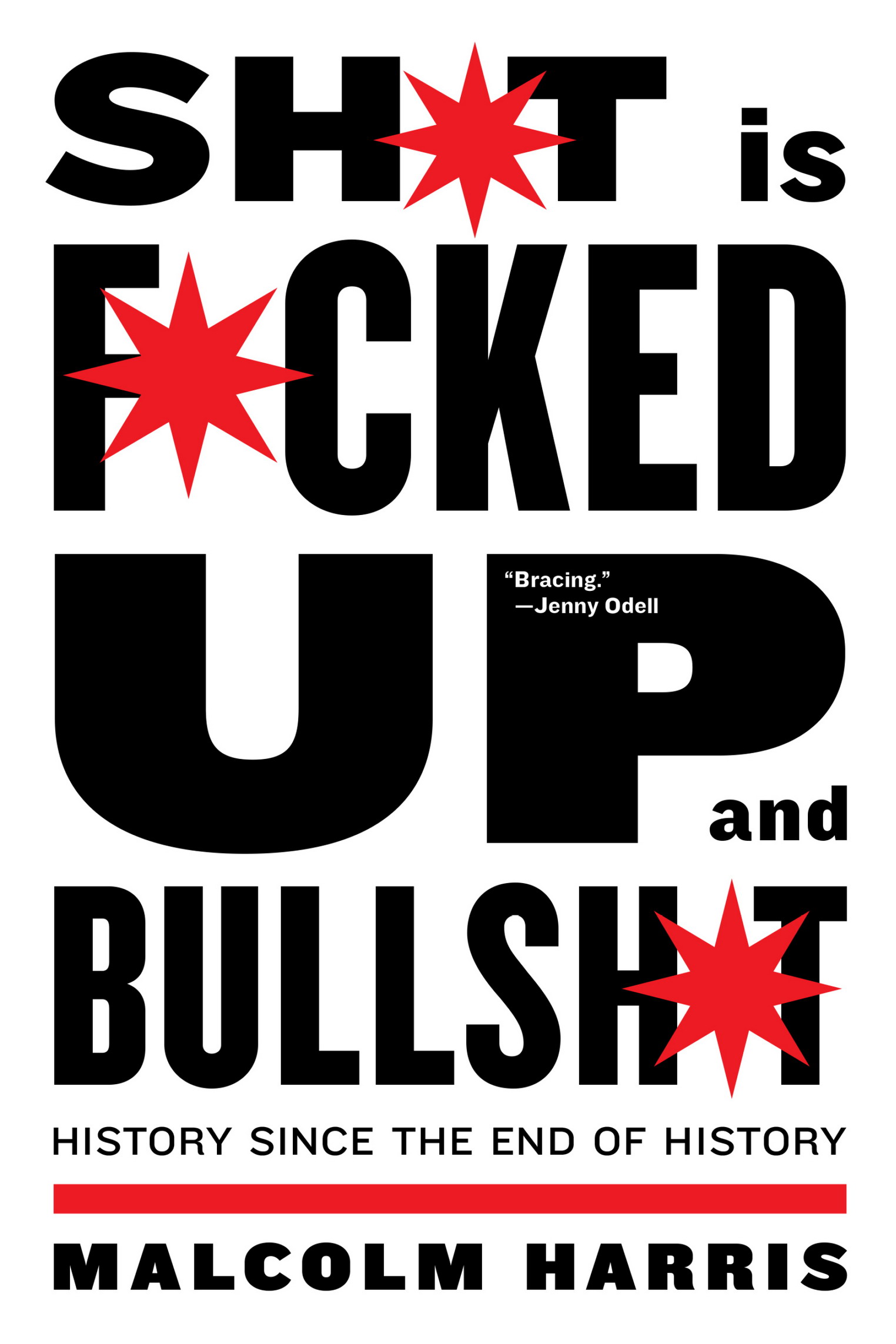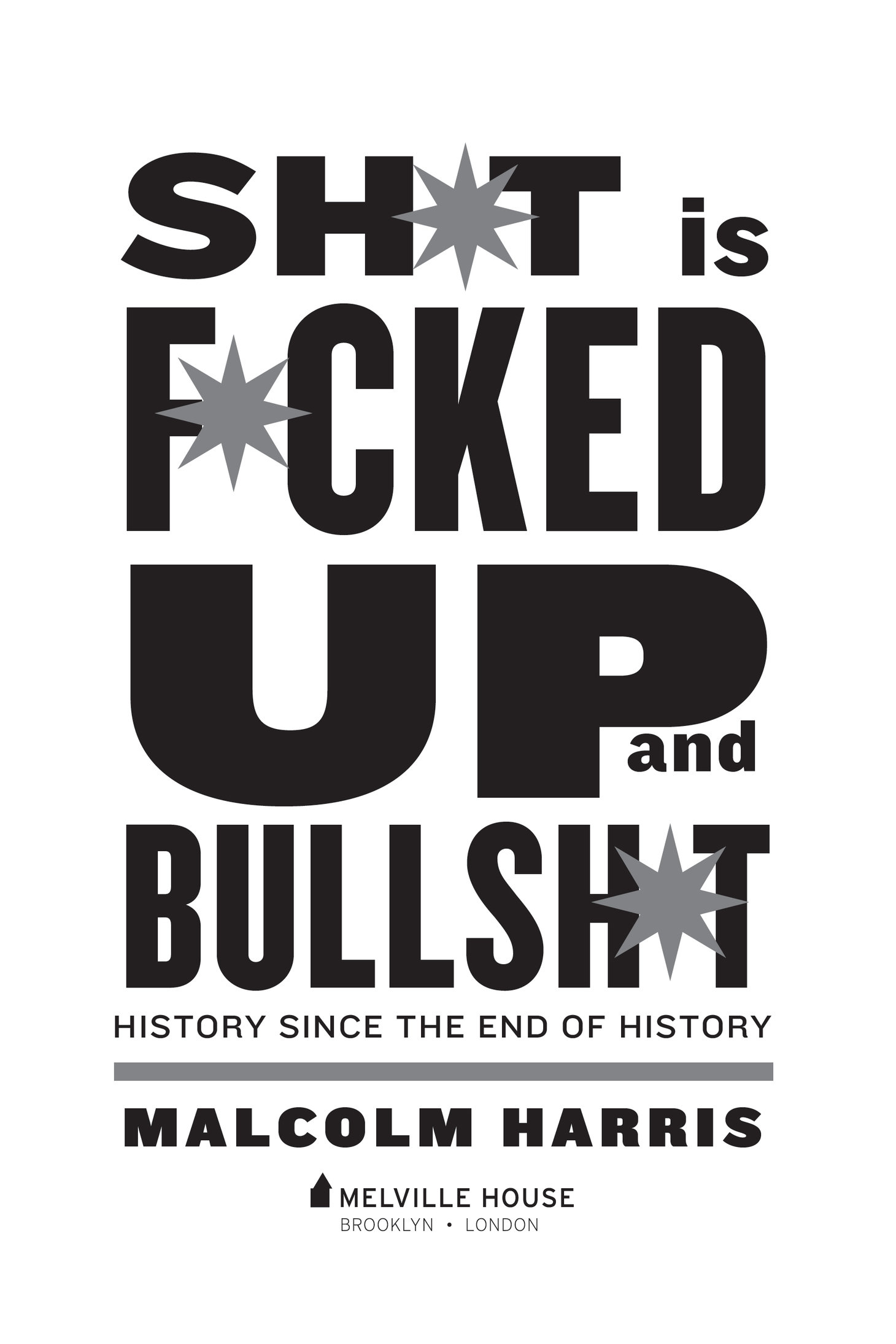All power to the people.
INTRODUCTION
The earth is extinguished, though I never saw it lit.
SAMUEL BECKETT, ENDGAME
T HE WRITING COLLECTED here spans the period between the summer of 2011 and the fall of 2019, between the birth of the Occupy movement and the midterm survival of the Trump regime. In the first piece (in terms of when it was written), on the rhetoric of the 2011 Ikea catalog, I quote Thomas L. Friedman, who summed up the feelings of that moment: Things will slowly get better, unless they slowly get worse. We should know soon, unless we dont. Wall Street put a gun to the nations head in 2008 and threatened to shoot. The government paid up and bailed out the capitalists. It was clear something historical had happened, but not what or why. Plus, historical things werent supposed to happen anymore.
While the established pundits struggled to make sense of the world, a new cohort of activists and writers emerged with a scavenged explanation: class conflict. The reason no one could figure out if America was in a crisis or out of one is because its effects were uneven, and by design. This was heresy in a twenty-first-century America, where socialism had been disproven. We were taught to locate ourselves near the end of historys long arc toward justice, a You are here dot sliding along the asymptote between the way things are and the best we could hope for them to be. And yet, stuff kept happening.
Instead of providing a higher standard of living to everyone for less work, we saw technology and the market generating unimaginable profits for a tiny ruling class, while everyone else struggled a bit harder every year. Americans lost their houses while rents went up and speculator landlords left beds empty. The crowning achievement of the Obama administration was a compromised health care bill that secured the existence of a rage-inducing private system. Higher education, that great equalizer, drove young people and their families into tens of thousands of dollars of average debt and didnt supply the promised good jobs. It became difficult to shake the feeling that most of us were on a trajectory other than slowly better.
Being in New York at the end of 2011 was the right place to be geographically at the wrong time historically. After I graduated from the University of Maryland in 2010, I moved back home to California and got a job off Craigslist at a new site focused on the sharing economy. (I had applied for a full-time gig with health insurance, but in a twist that would become familiar, wound up with a part-time remote contract that paid a few hundred bucks a week.) For some months I spent my spare time reading, watching Netflix DVDs, writing on my blog, and thinking about what to do with myself. When I had told an advisor at Maryland that I hoped to write about ideas professionally but outside academia, he laughed and asked, Are you independently wealthy or do you plan to live off women? I resigned myself to grad school.
Not wanting to get too comfortable back at home (and knowing I wouldnt be able to afford to live in the Bay Area), I planned a trip to the East Coast to try and find a place to live. The low level of commitment between remote worker and remote boss excused a move without warning, I figured, as long as I maintained Internet access. At the same time, I had earned my first real publication. I stumbled on a new online magazine that seemed like it would be a good fit for my writing, and I sent the Ikea piece to their submissions email. On the other end of the address was the small crew that made up The New Inquiry, principally publisher Rachel Rosenfelt and editor Rob Horning. They liked my piece and more of the material on the blog. When I visited New York, Rachel made me an offer: move to Brooklyn, help edit The New Inquiry, and stay in her closet-sized extra bedroom for $400 a month until I found a permanent place. As anyone whos lived in New York in the twenty-first century knows, thats the kind of deal you cant turn down.
I kept my other job, spent most of my time working on TNI, and started to get to know the New York writing world. I got my medium-sized break in the spring of 2011 when the magazine n+1 published an essay Id written about the explosion of student debt called Bad Education. Based on research Id done in college for a presentation I helped develop for a left-wing student group about the financial crisis and its connection to the university, that piece gave me something to point to when I was pitching book reviews or justifying my presence at magazine parties. Though it didnt turn into a bunch of highly paid reporting assignments, the strong reception of Bad Education (along with Rachels insistence) convinced me that I wouldnt have to get another degree to be taken seriously. Plus none of the grad schools to which I had applied chose to admit me, which made it hard to attend any of them.
The first Occupy Wall Street general assembly was August 2, 2011. Occupation was the preferred tactic of the ultraleft student movement, which I had been a part of at Maryland. I had childhood friends who joined building occupations as part of the fight against tuition hikes at the Universities of California and I watched videos online of them being beaten and pepper sprayed by police. Students at the Rio Piedras campus of the University of Puerto Rico took over their school for real, leading the fight against austerity on the island. Some of us wanted more, bigger occupations, outside the schools and into the public squares. Occupy everything was the slogan, and the plan was to never give it back. We didnt quite get to world revolution, but we got a lot further than almost anyone expected. Sometimes I fear that the most important thing Ill ever do with my life is fake a rock concert or lose a court case about my Twitter accountmore on that soon.
My Occupy case lasted longer than the occupation, but it didnt stop me from working. At the beginning of 2012, The New Inquiry launched as a two-dollar-a-month subscription (digital) magazine, and I left my job to edit full-time. Well, I didnt leave so much as I informed my boss that he had neglected to renew my contract and therefore I didnt work for him anymore and was going to do something else. The first issue of TNI was, fittingly, based on the topic of precaritythe weak connections that increasingly characterize the employment relationship. TNIs readers paid my rent for three years, and it was an immense privilege (as well as a ton of work). I got to edit an incredible set of writers, and Im proud of the material we put out, including especially prescient issues on drones, cops, weather, weed, consent, and borders.

